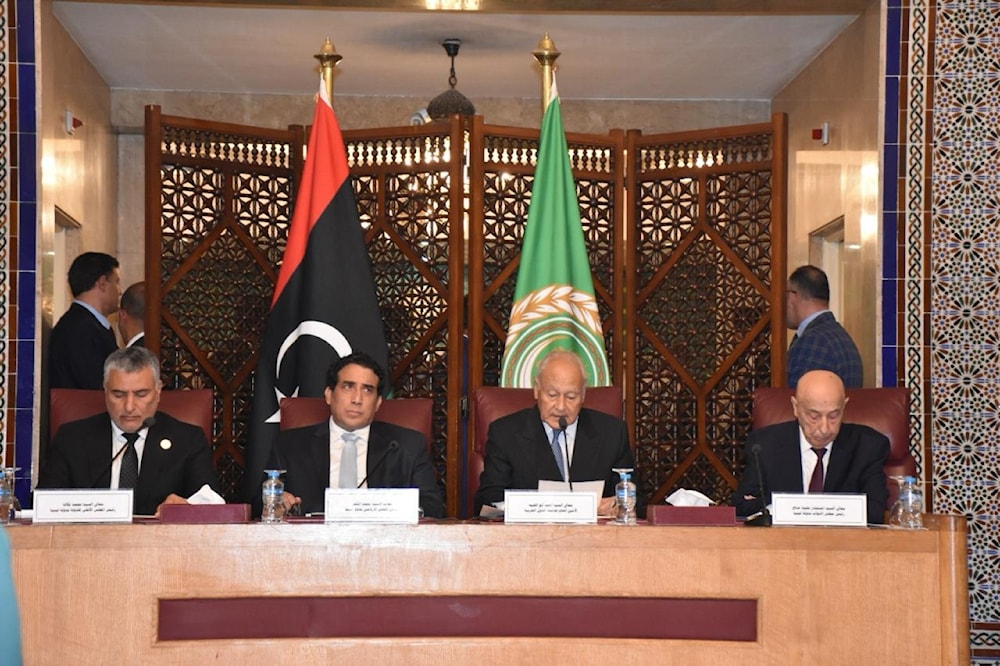Rival Libyan factions agree to end discord, form unified government
The agreement took effect during a meeting of the LAS at its headquarters in Cairo, Egypt, on Sunday.
-

Libyan Presidential Council Chairman Mohamed al-Menfi, Libyan House of Representatives Speaker Aguila Saleh, and Supreme Council of State President Mohamed Takala are pictured at the headquarters of the League of Arab States on March 10, 2023, in Cairo, Egypt. (@lassecgen)
The League of Arab States (LAS) announced in a statement on Sunday that Libyan leaders from rival factions have agreed on the urgency of forming a unified government and holding presidential and parliamentary elections in the country.
This agreement was reached during a meeting of the LAS held at its headquarters in Cairo, Egypt, on Sunday.
An earlier statement issued on Saturday mentioned that Secretary-General Ahmed Aboul Gheit would meet on Sunday with Libyan Presidential Council Chairman Mohamed al-Menfi, Libyan House of Representatives Speaker Aguila Saleh, and Supreme Council of State President Mohamed Takala to discuss ways to "extricate Libya from its longstanding crisis."
"The agreed-upon points include … Forming a unified government tasked with overseeing the electoral process and providing necessary services to citizens," the LAS stated in its Sunday announcement.
They further agreed on the establishment of a technical committee tasked with overseeing amendments to the bill on presidential and parliamentary elections to "resolve outstanding issues on controversial points in accordance with existing legislation," the statement added.
سعدت اليوم باستقبال الرؤساء #المنفي و #صالح و #تكالة بمقر #الجامعة_العربية لصالح تيسير الحوار بين الأطراف الليبية. بيت العرب كان ولا يزال مستعداً لكل دعم ومساعدة ومواكبة للقيادات والسياسيين الليبيين للوصول الي الاهداف التي ينشدها الشعب الليبي . تمنياتي أن يدفع هذا اللقاء بالأمور… pic.twitter.com/nrol32VRU4
— الأمين العام لجامعة الدول العربية (@lassecgen) March 10, 2024
For years, Libya has suffered from endemic crises as a result of a power vacuum that emerged following the disastrous NATO-led military invasion and destruction of the country in 2011.
Despite the historic ceasefire agreed upon by the warring parties in 2020, the underlying differences remain unresolved, leading to the continued governance by two rival governments within the country.
The UN has previously attempted to mend political fissures by helping Libyans organize a general election, but internal divisions led to the cancellation of the vote scheduled for 2021.
Read more: Libya: More mass graves exposed as NATO-backed war nears 12-year mark

 2 Min Read
2 Min Read








